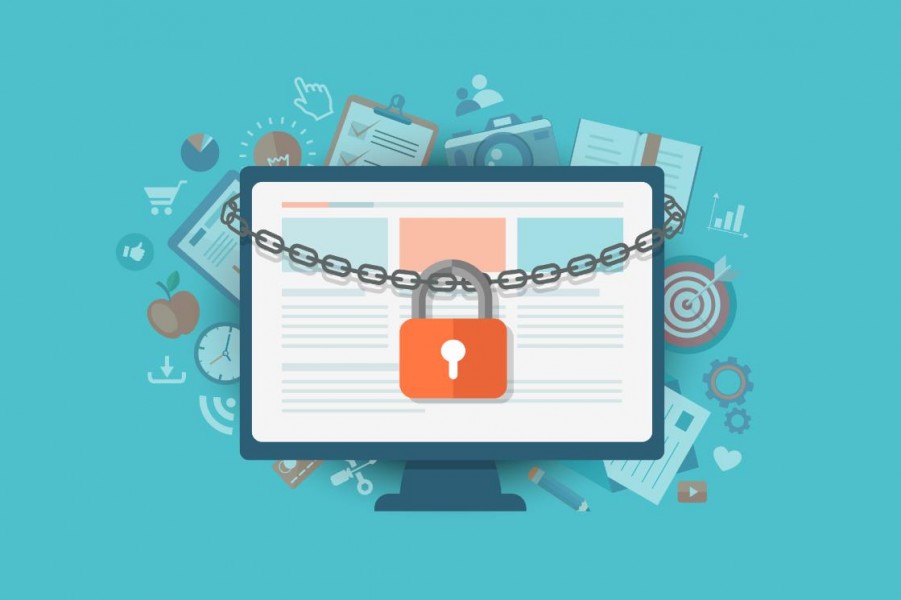

[vc_row bg_type=”” dima_canvas_style=”” translate_x=”0″ dima_z_index=”0″ delay=”” delay_duration=”” delay_offset=””][vc_column min_height=”” bg_type=”” dima_canvas_style=”” translate_x=”0″ dima_z_index=”0″ delay=”” delay_duration=”” delay_offset=”” width=”1/1″][text]Most businesses store sensitive personal information—such as names, Social Security numbers, credit card details, or other account data—that identifies customers or employees.
This data is often essential for completing transactions, processing payroll, or carrying out other business functions. However, if it falls into the wrong hands, it can result in fraud, identity theft, and similar risks. The cost of a data breach can be high, including loss of customer trust and potential legal action, making it crucial to protect personal information as a fundamental part of doing business.
Whether it’s managing client information, proprietary data, or financial records, a significant portion of daily operations relies on technology. With this reliance comes a serious responsibility: ensuring that all confidential data is secure. One of the best ways to uphold this responsibility is by having a solid data security plan.
A strong data security plan is based on five essential principles:
To protect sensitive data, the first step is to know exactly where it’s stored. Conduct a thorough inventory of all computers, laptops, mobile devices, flash drives, disks, home computers, digital copiers, and other equipment used by your business. It’s essential to track both the type and location of the information. Don’t just stop at file cabinets or computer systems—consider all the ways your business receives and stores data, from websites to contractors and call centers.
Ensure that you check all potential storage locations, including employees’ home computers, digital copiers, mobile devices, and cloud services. This means engaging with various departments like sales, IT, HR, and accounting, as well as external service providers, to get a clear view of how personal information moves through your business.
Key questions to ask include:
If your business doesn’t have a legitimate need for sensitive personal information, don’t collect or store it. When you do need this information, keep it only for as long as necessary. For example, Social Security numbers should only be used for lawful purposes, like reporting employee taxes, and not as general identification numbers. Avoid collecting or storing sensitive data unless it’s absolutely required for your operations.
If your business develops mobile apps or other digital products, ensure they access only the data essential to their functionality. Unnecessary collection and storage of personal information increases your responsibility to protect it and raises the risk of data breaches.
Be particularly cautious with financial data. Don’t retain customer credit card numbers or expiration dates unless you have a valid business reason for doing so. Holding onto such information longer than needed increases the potential for fraud or identity theft.
To effectively protect sensitive personal information, businesses must implement a robust security strategy that addresses several key areas: physical security, electronic security, employee training, and the security practices of contractors and service providers.
Physical security is often overlooked, but many data breaches occur through the loss or theft of physical documents. The most basic defense is often the most effective—locking doors and securing sensitive paperwork. It’s important to store paper records, thumb drives, and backup data in locked rooms or file cabinets, ensuring that only employees with a legitimate business need have access.
Electronic security is equally vital, and it is not just the responsibility of the IT department—everyone within the business should understand the vulnerabilities of the system and take steps to protect it. This begins with identifying where sensitive personal information is stored.
Additionally, scale down who has access to sensitive data by following the “principle of least privilege.” This means employees should only have access to the data they need to perform their specific job functions, minimizing unnecessary exposure to sensitive information.
What may seem like trash to you can be a treasure trove for identity thieves. Discarding credit card receipts, papers, or CDs containing personally identifying information in an unsecured manner can facilitate fraud and expose individuals to identity theft. Proper disposal of sensitive information ensures it cannot be read, reconstructed, or used maliciously.
Implement disposal practices that are appropriate for the sensitivity of the information. The methods you choose should be based on the nature of the data, cost and benefits of disposal techniques, and advances in technology. For paper records, effective methods include shredding, burning, or pulverizing them before discarding. To make it easier, provide shredders throughout the workplace, especially near photocopiers or areas where sensitive data is frequently handled.
When it comes to disposing of old computers or portable storage devices, it’s essential to securely erase all data. Using software known as wipe utility programs is an effective and inexpensive way to overwrite the entire hard drive, ensuring that files cannot be recovered. Simple deletion using keyboard or mouse commands is not enough, as the data can still be retrieved from the hard drive.
It’s also important to ensure that employees working from home follow these same procedures for disposing of sensitive documents and outdated electronic devices. By properly eliminating data you no longer need, you significantly reduce the risk of unauthorized access and identity theft.
While taking steps to protect the data you store is essential, breaches can still occur. Being prepared to respond swiftly and effectively can minimize the impact on your business, employees, and customers.
Create a detailed response plan for security incidents and assign a responsible staff member to oversee its implementation. If a breach occurs, the immediate action should be to disconnect any compromised computers from the network to prevent further damage. Investigate the incident right away, identify vulnerabilities, and take steps to eliminate the threats to personal information.
There is no universal solution to data security, as the right approach varies based on your business’s specific needs and the types of information you handle. Many of the most effective security measures—such as employing strong passwords, securing sensitive documents, and training your staff—are either free or inexpensive. Prioritizing data security not only protects your business but also preserves your reputation and strengthens customer relationships.
If you think you can benefit from bringing in external expertise, get in touch with DDKinfotech to learn more about how we can help.[/text][/vc_column][/vc_row]

